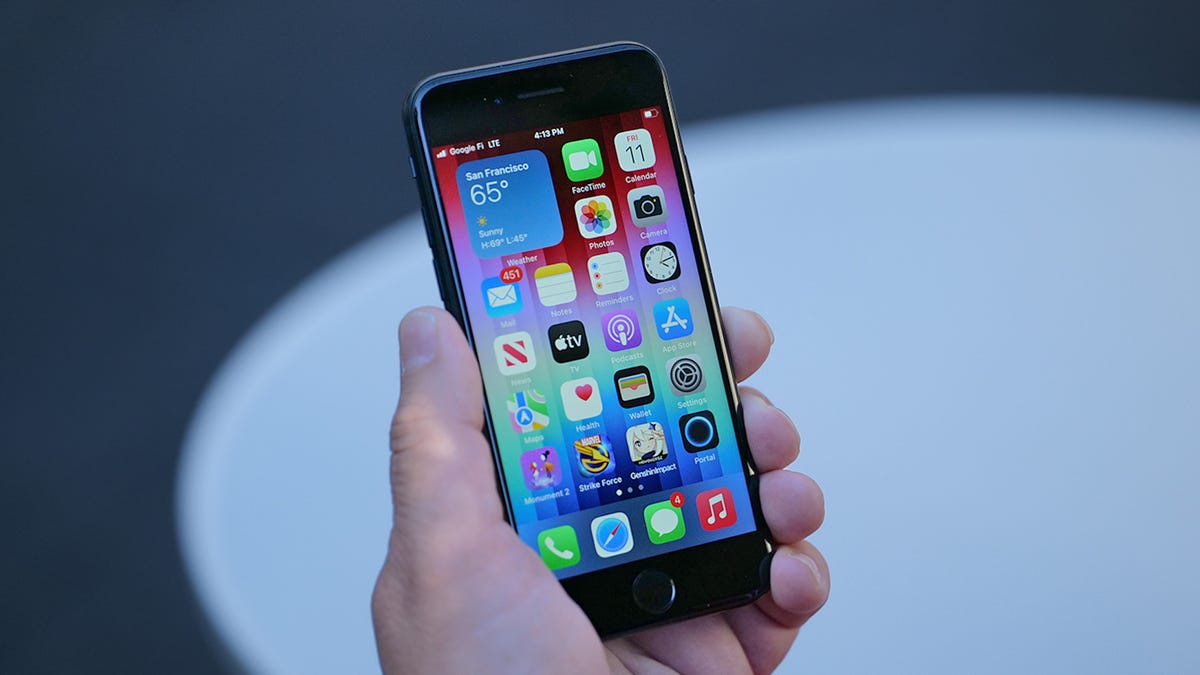Qualcomm Assumes iPhones Will Switch to Apple Modems in 2024
Qualcomm CEO Cristiano Amon told CNBC he assumes Apple won't use its 5G modems in next year's iPhones.

Qualcomm dropped a bit of an inside-baseball bombshell at Mobile World Congress on Wednesday: It isn't planning on supplying Apple with modems for its 2024 iPhones. This aligns with an analyst prediction from earlier in the week that Apple intends to use its own in-house modems starting next year with the iPhone SE 4, its next affordable handset.
"We're making no plans for 2024, my planning assumption is we're not providing [Apple] a modem in '24, but it's their decision to make," Qualcomm CEO Cristiano Amon told CNBC at MWC in Barcelona.
Apple could change its mind about using Qualcomm chips, but this intel suggests that the tech giant is moving closer to a long-expected goal of using its own hardware to connect iPhones to mobile networks and satellites. Qualcomm's comments put the ball in Apple's court.
At the beginning of the year, noted Apple analyst Ming-Chi Kuo said the company had canceled the fourth generation of its iPhone SE line. But now he believes the phone is back on track and may use the first of Apple's internally developed modems, or 5G baseband chips, Kuo tweeted in a lengthy thread of predictions.
(1/10)
— 郭明錤 (Ming-Chi Kuo) (@mingchikuo) February 27, 2023
[Update] Apple has restarted the iPhone SE 4 and will adopt an in-house 5G baseband chip. The significant decline in Qualcomm's Apple orders in the foreseeable future is a foregone conclusion. https://t.co/0MeZDFnbzg
Rumors have swirled for years that Apple has wanted to build its own baseband chips, which handle the iPhone's antenna functions. Back in 2021, Kuo predicted that Apple may stop using Qualcomm's silicon in favor of its own baseband chips in as little as two years, though that effort seemingly stalled as Apple struggled to develop its own connectivity hardware.
Kuo's newest prediction suggests Apple may have solved at least some of its issues with producing an in-house baseband chip, though he noted that it will only support sub-6 5G, the midband set of 5G frequencies that most carriers around the world use for their 5G networks.
But since it's still unclear if Apple's baseband chips will support the higher-speed millimeter-wave flavor of 5G or satellite communications for the Emergency SOS feature, Kuo doesn't know whether the first flagship iPhones that could use the chips -- the iPhone 16 series coming in 2024 -- will have them.
If Apple starts producing baseband 5G chips for the iPhone SE 4 in the first half of 2024, then those chips could come to the iPad and Apple Watch next, Kuo said. That would mean much fewer orders for Qualcomm connectivity chips.
Aside from the new silicon, the iPhone SE 4 could pack an OLED display instead of an LCD screen, six years after the first flagship iPhone switched to an OLED display with the iPhone X in 2017.
Apple didn't respond to a request for comment.

